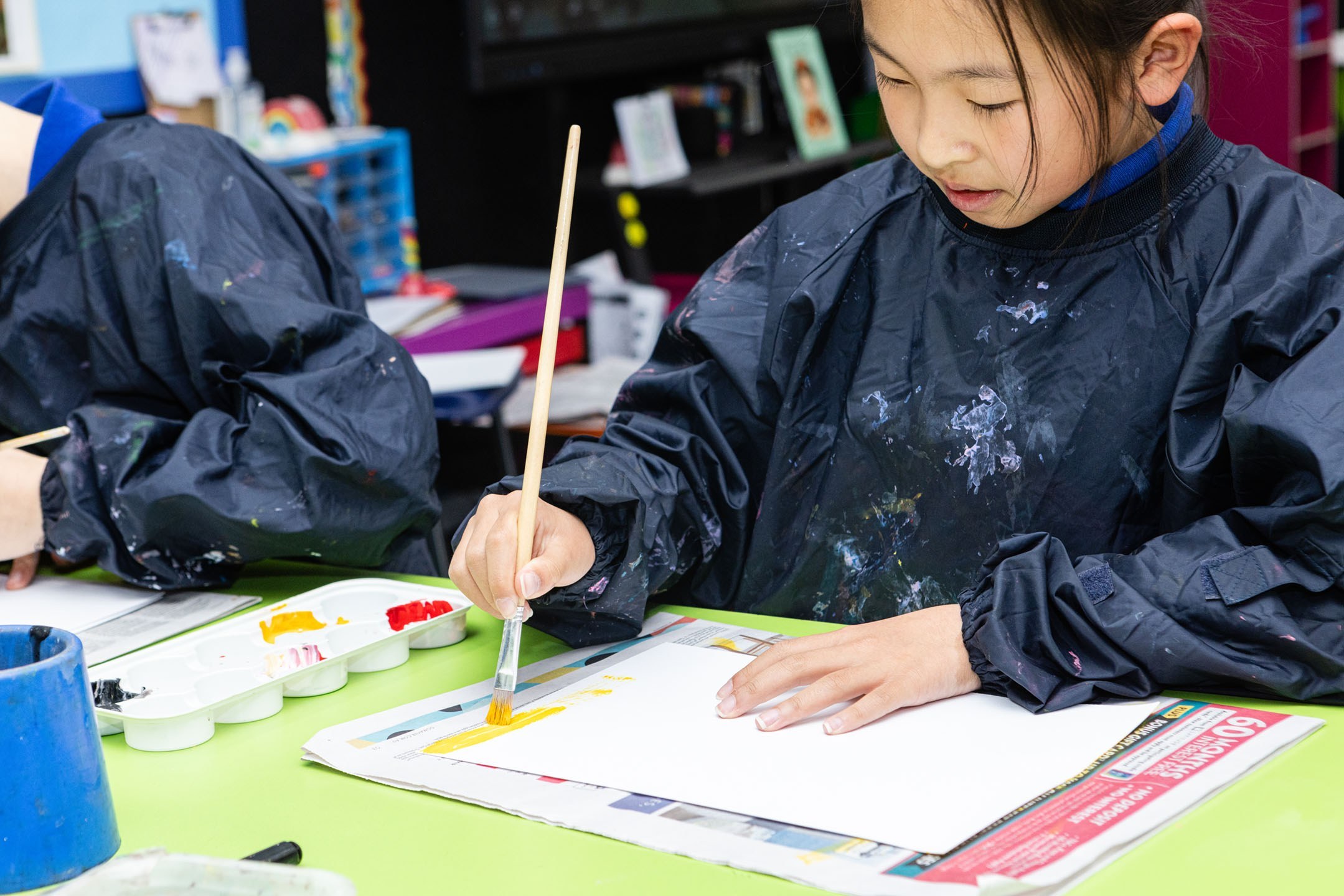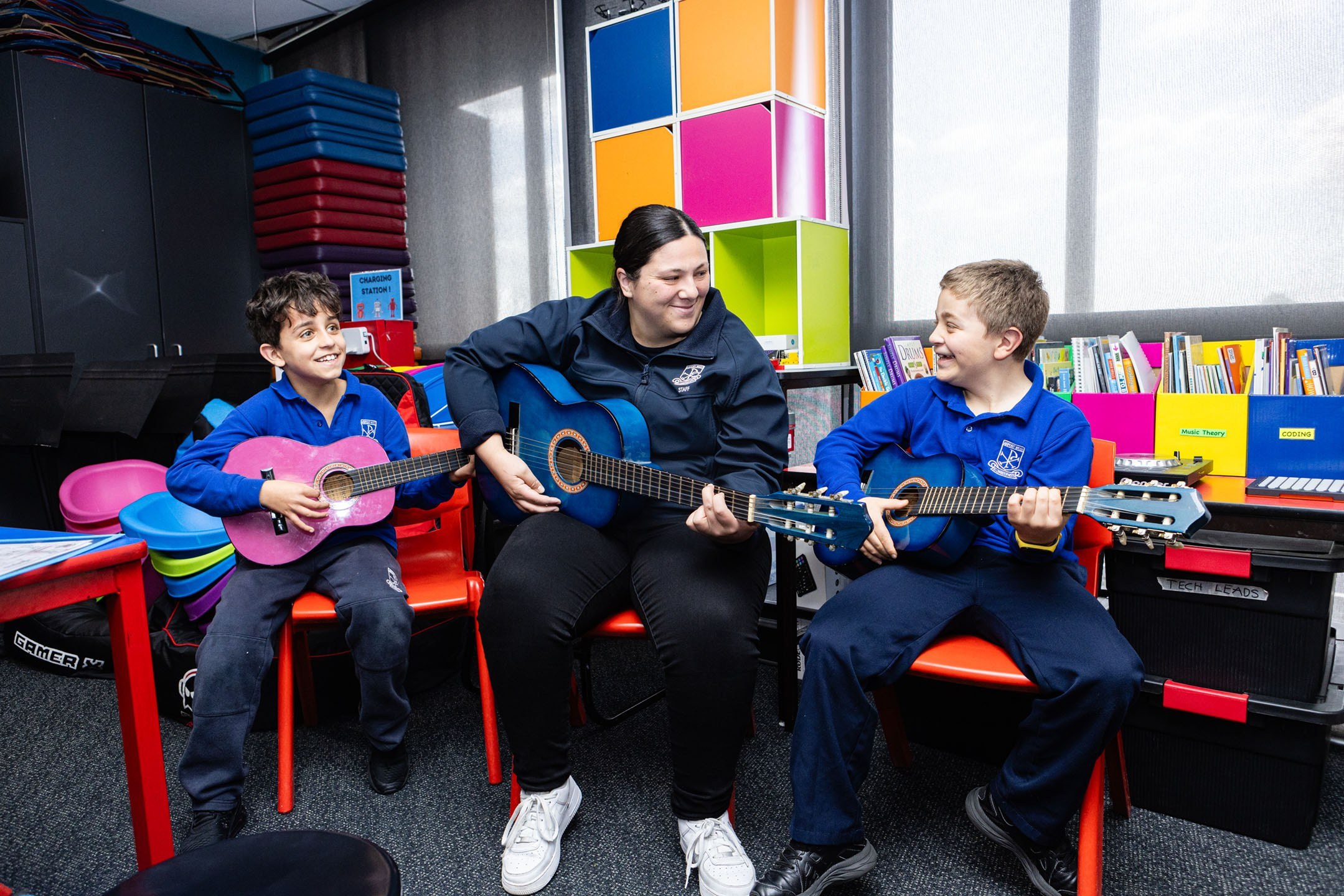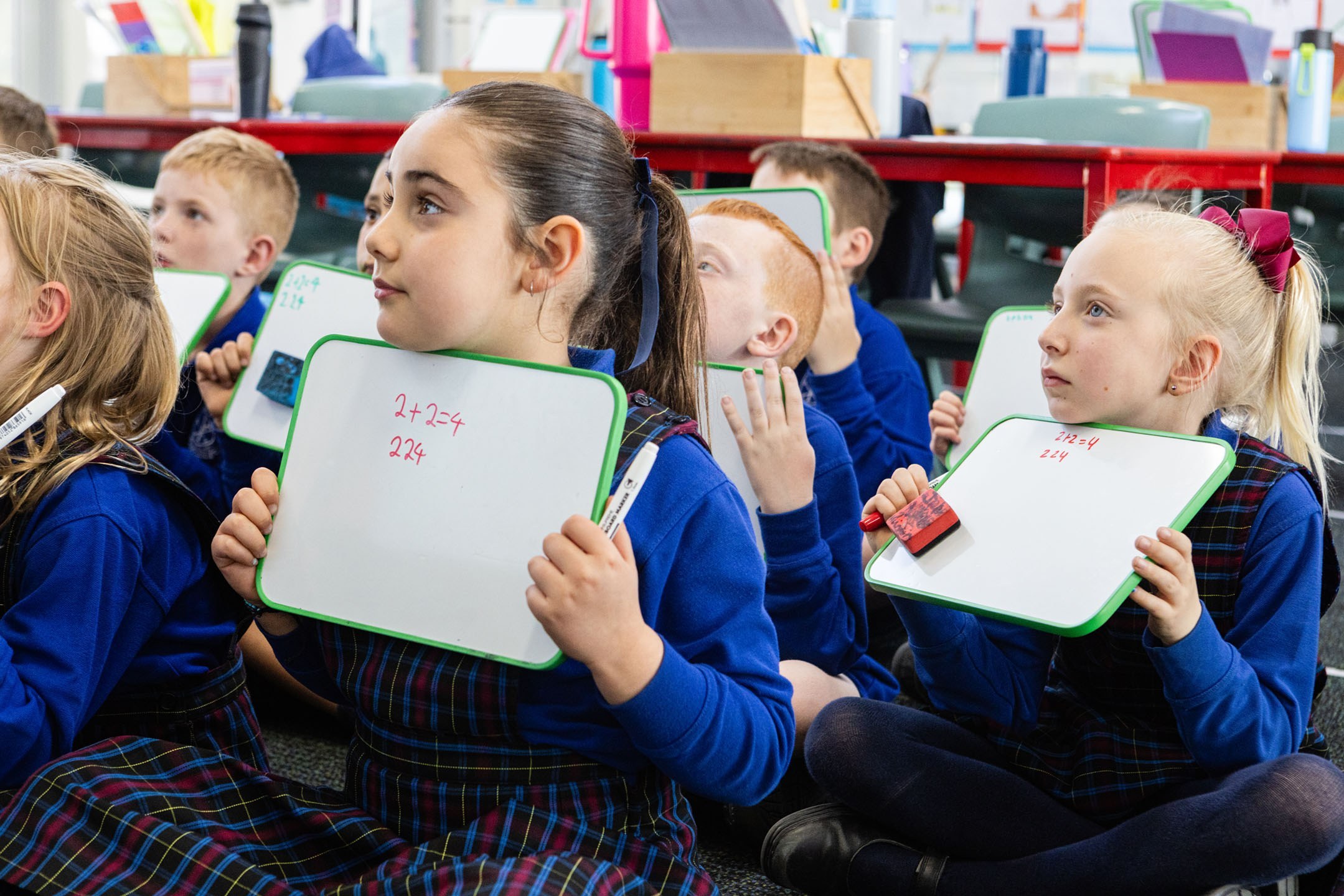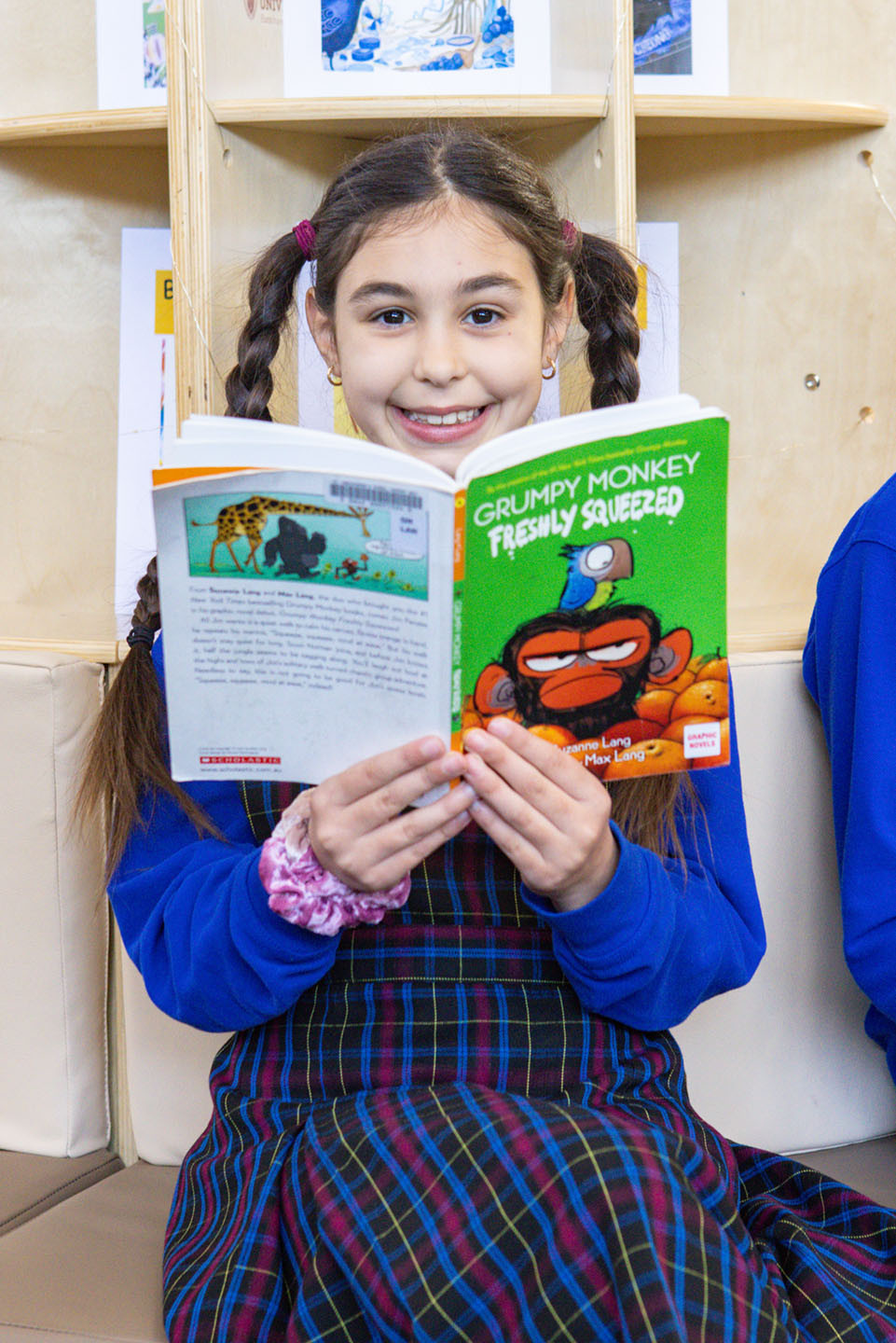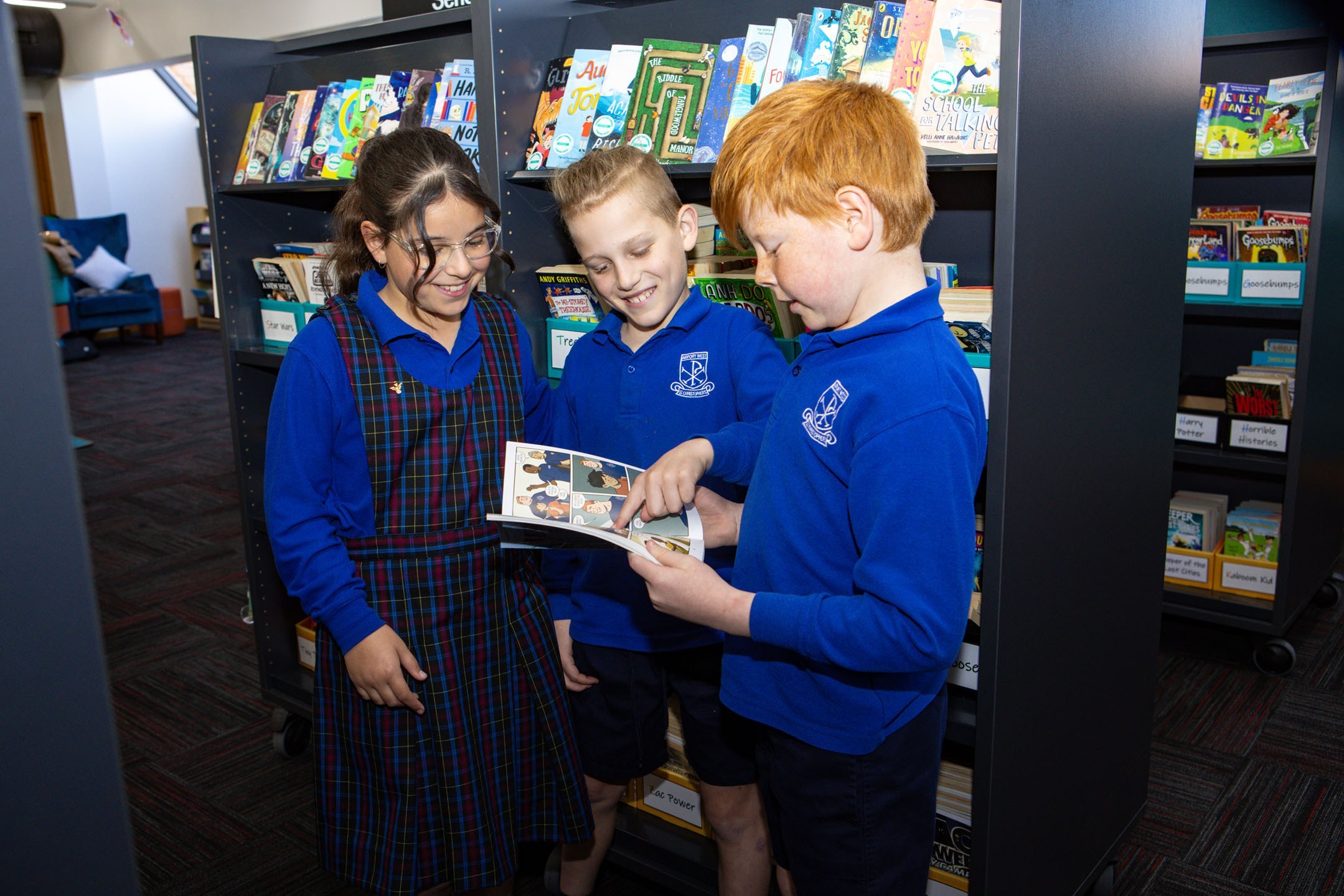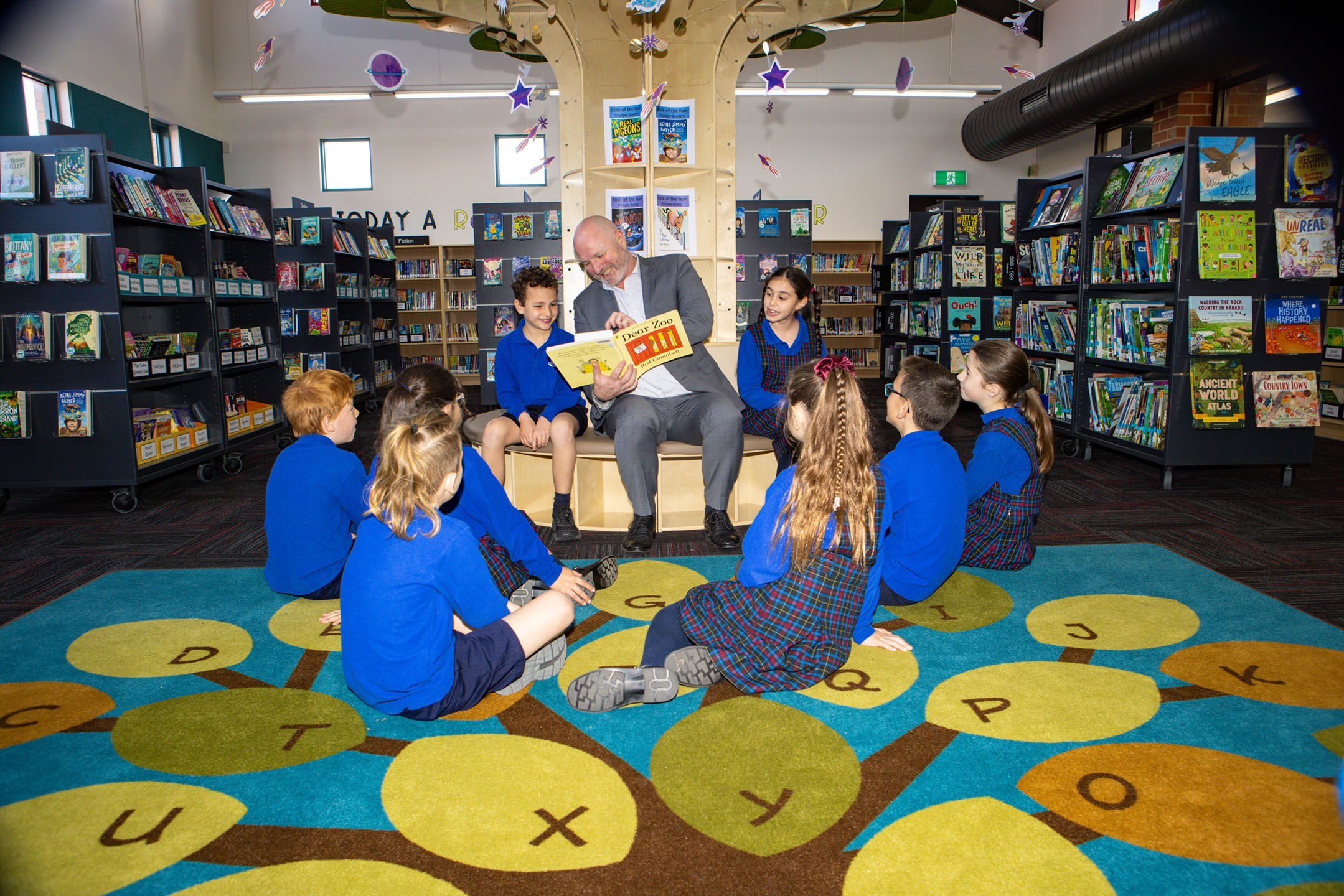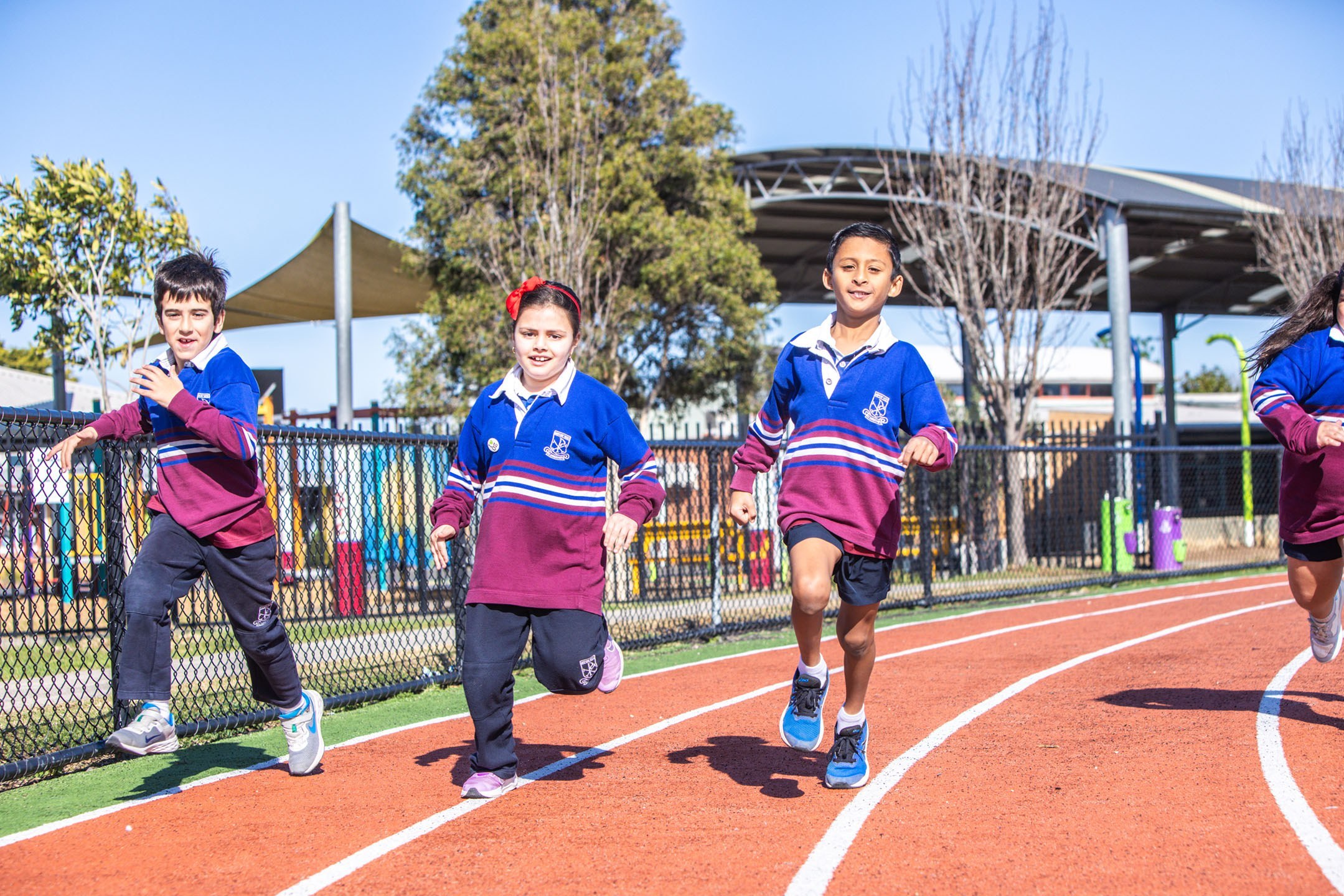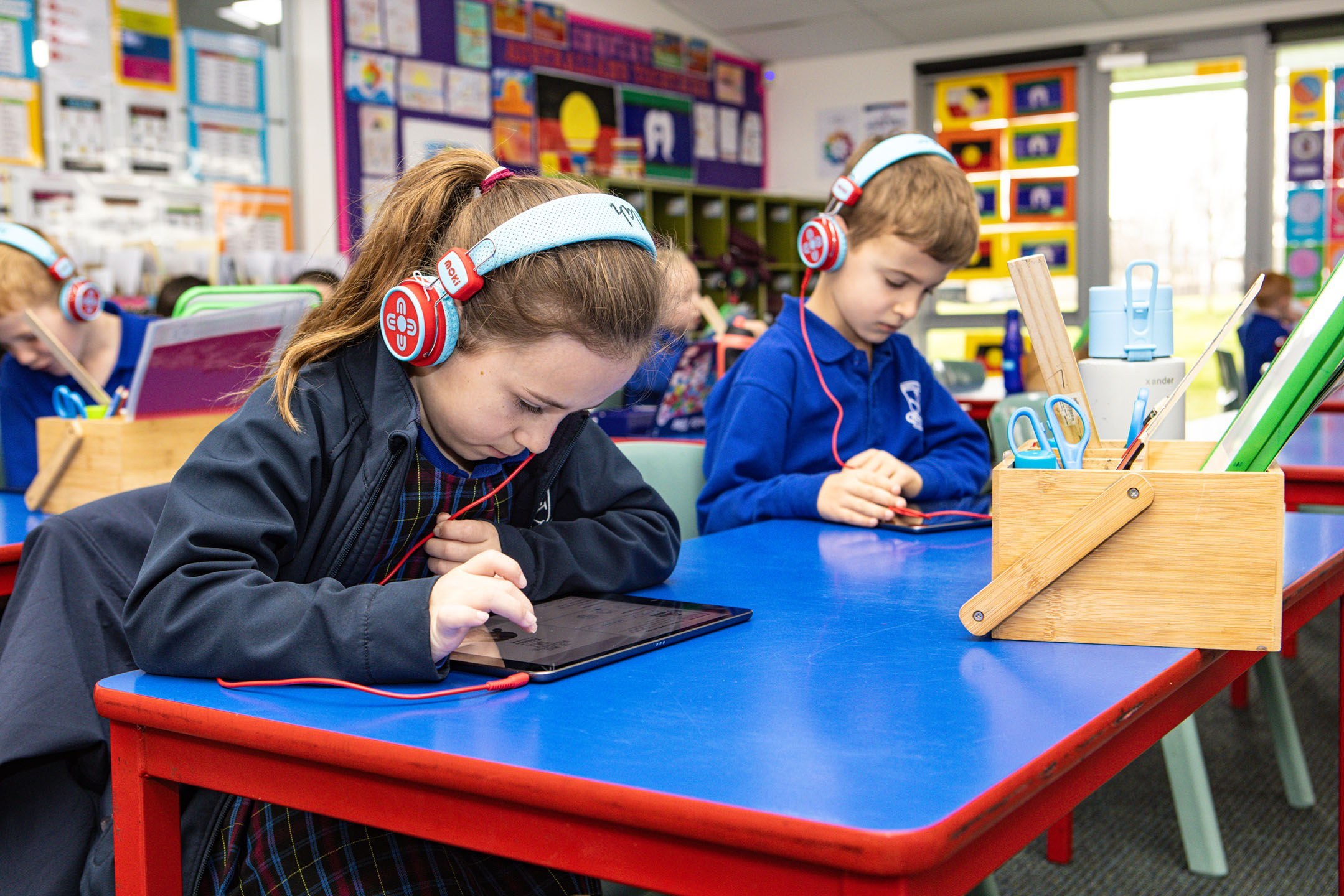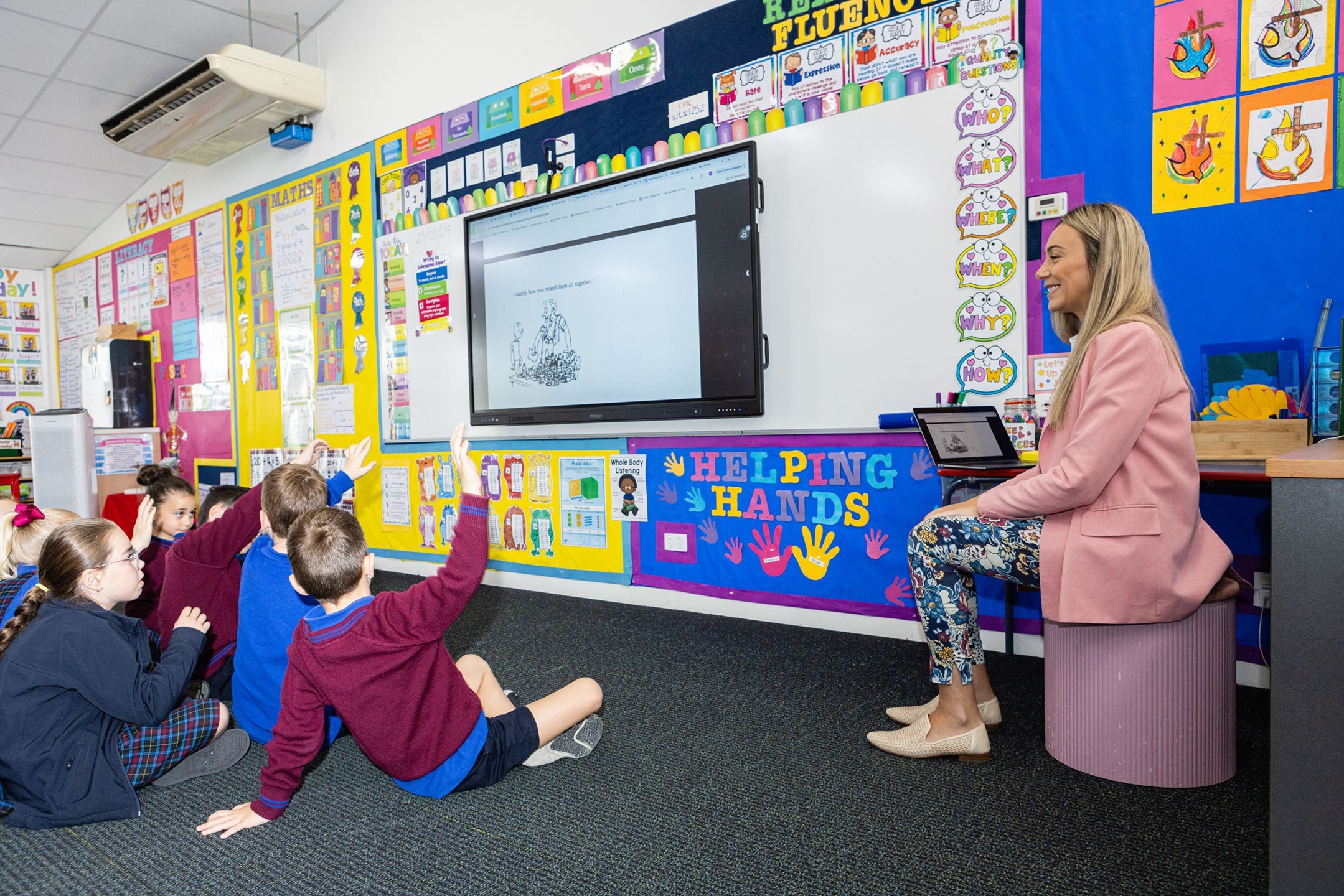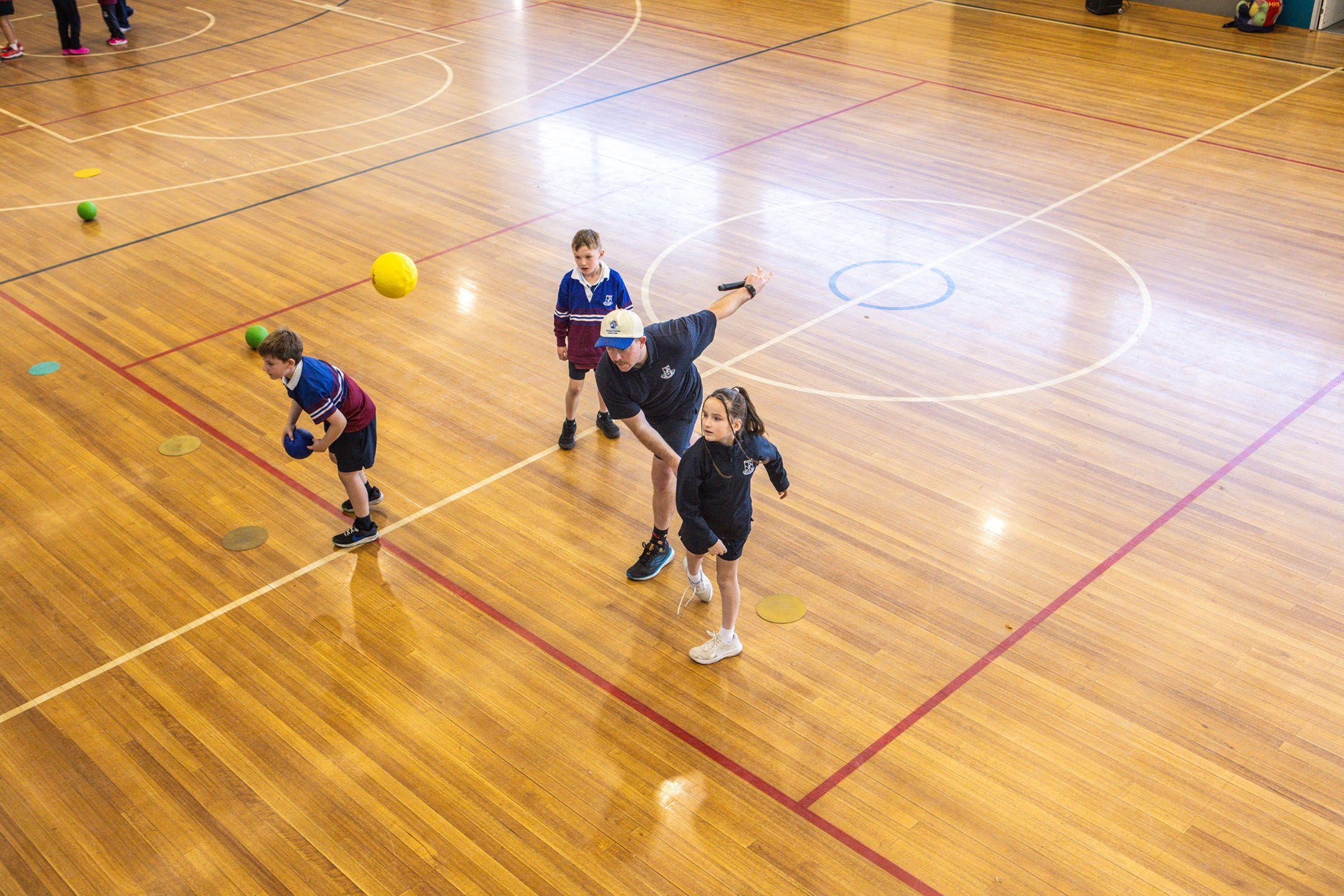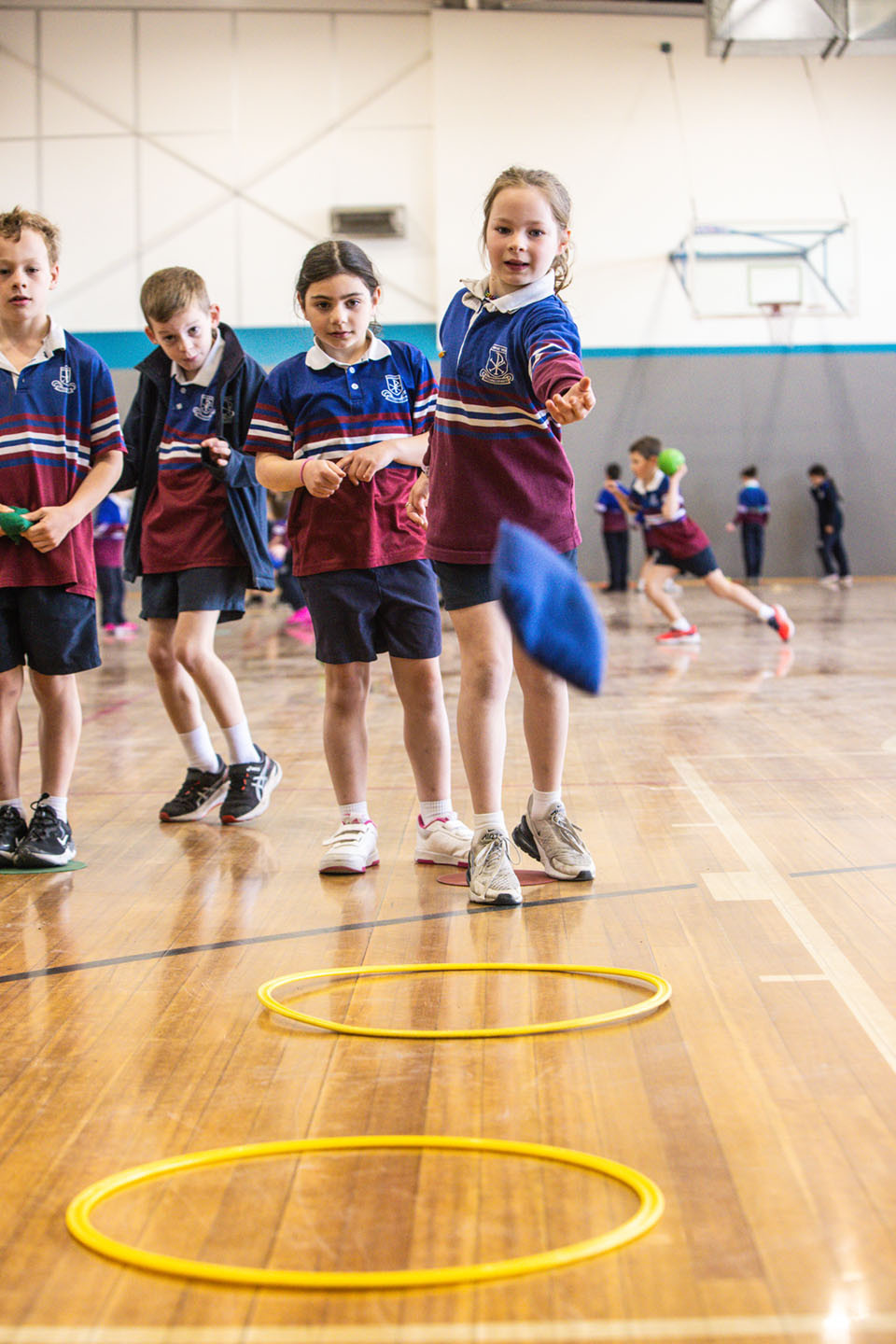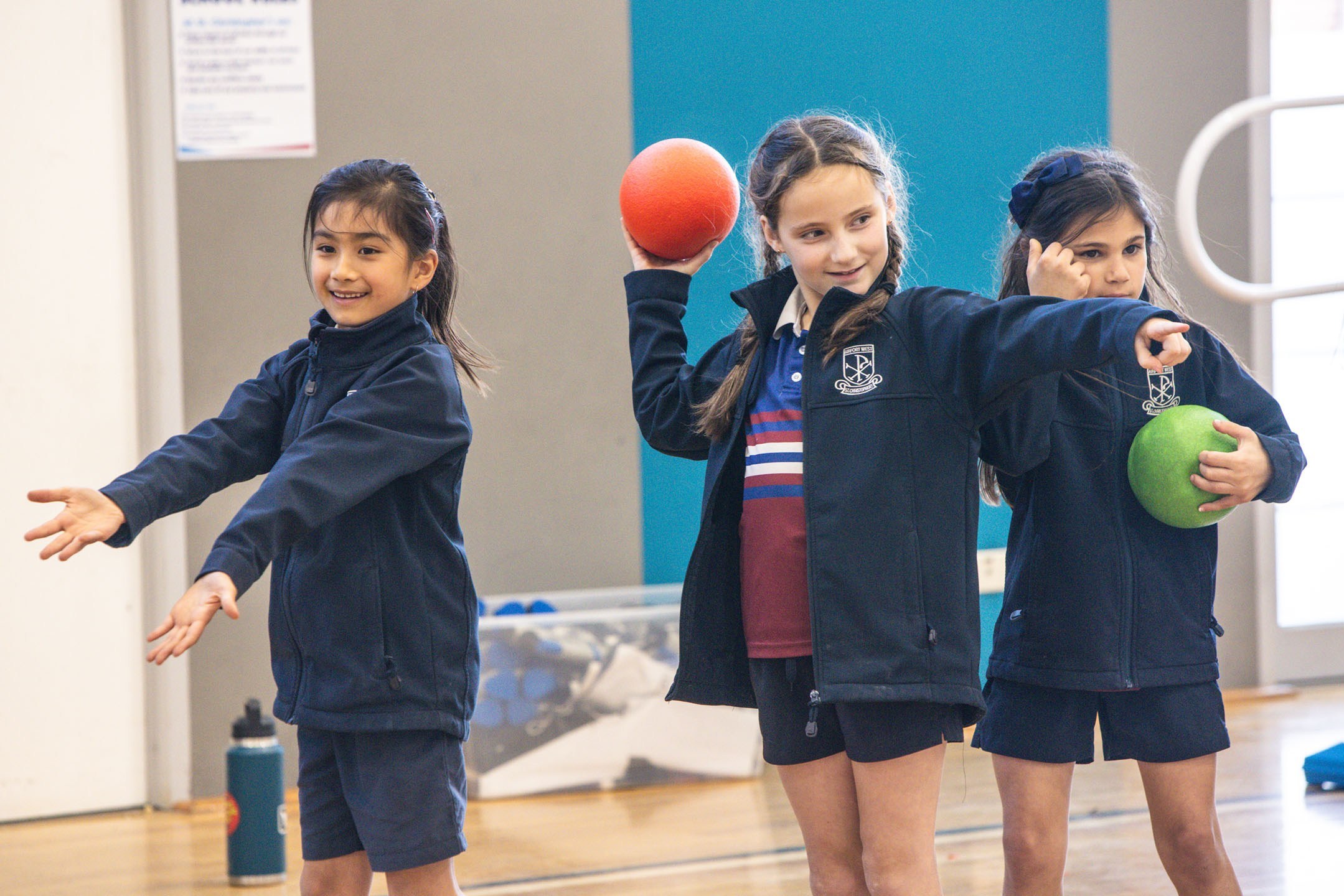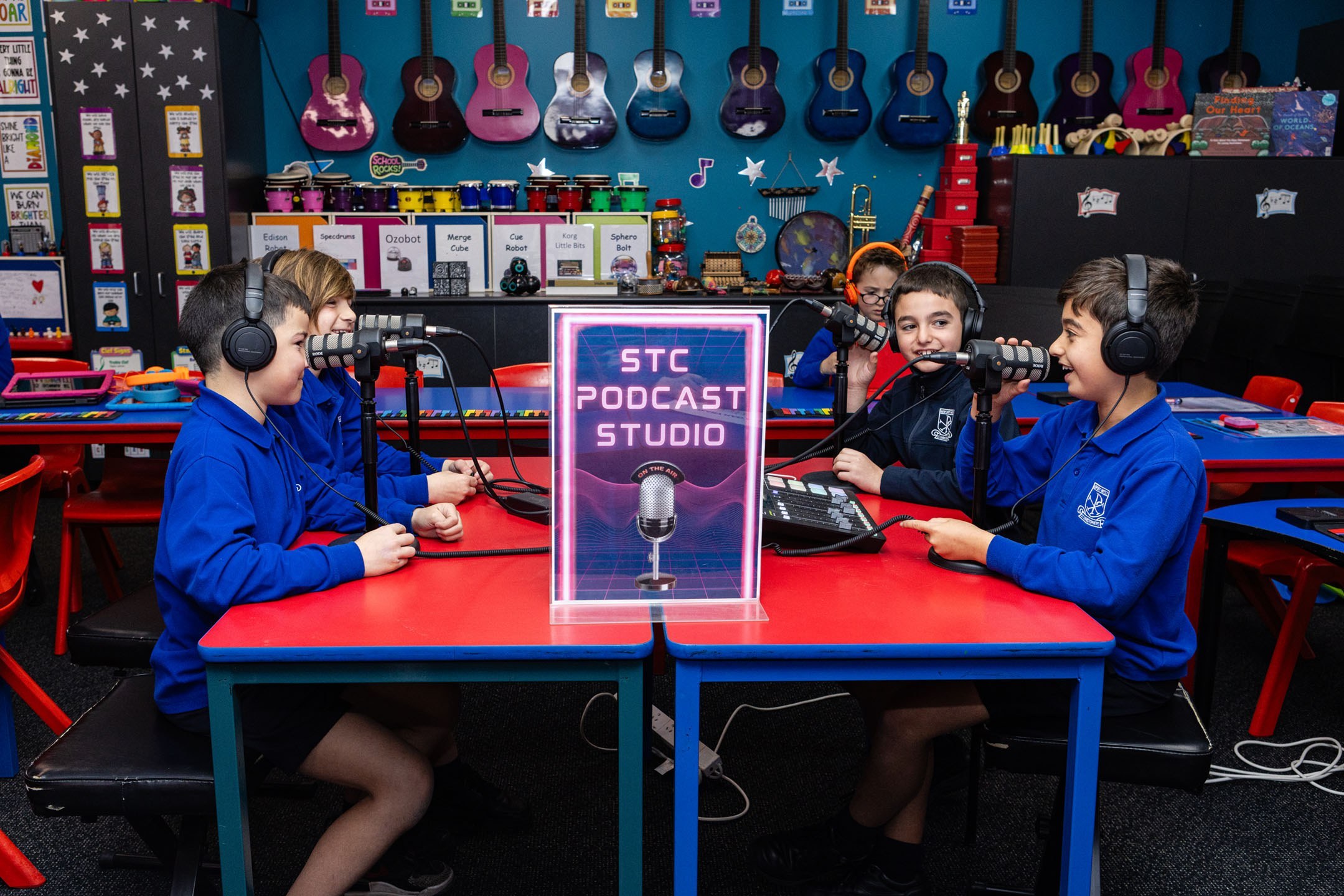St Christopher’s is committed to providing evidence-based instruction within an environment where every student feels respected, connected and protected and their voice is heard.
Our learning and teaching programs are based on the most recent cognitive science research. Explicit instruction involves teachers introducing complex skills in small steps, with regular opportunities to review and retrieve learning. Students then practise what they have learned and receive feedback from their teacher until the skill is mastered. Once students have developed an understanding, students are provided with opportunities for independent practice to demonstrate their learning.
St Christopher’s is a visible learning school. Students are empowered to understand themselves as learners and to actively drive their learning. Through the use of learning intentions, success criteria and exemplars of work, we strive to make the learning clear for our students. We provide opportunities for our students to regularly self-reflect and engage in peer and teacher feedback to support their learning. We develop our students’ capacity to dialogue about their learning journeys and set achievable goals. We encourage our students to take responsibility for their learning by tracking and monitoring their own progress. Within this process, students are supported through the use of rubrics, pre and post-assessments and regular checks for understanding to ensure success in their learning. We foster a ‘Culture of Error’ where errors are valued as a necessary part of the learning process.
All learners are empowered with the knowledge, skills and dispositions needed to live and learn in an ever-changing world.
View Melbourne Archdiocese Catholic Schools (MACS) Parents Guide to Vision for Instruction
At St Christopher’s, we believe that a successful language program is one in which reading, writing, speaking, listening and viewing are integrated in a supportive and stimulating environment. Students are supported in becoming multiliterate, which means that they can make meaning from texts of all types, including written, spoken and visual, and use these text types for their own communication purposes.
All learners are supported by explicit and scaffolded evidence-based teaching practices. Our teaching and learning programs are underpinned by the body of research known as the Science of Learning. Our structured literacy sessions include specific skill development in oral language, phonological awareness, phonics, vocabulary, fluency and comprehension.
St Christopher's has a range of interventions to support students who require further assistance in the area of Literacy. Included in these interventions are evidence-based programs such as MiniLit and MacqLit, Group Reading and Rereading Easy Texts Aloud Daily (GRREAD) and Year Prep-6 Target Teaching groups for reading and writing.
At St Christopher’s our Mathematics Program starts with your child. Knowing our students and their strengths and learning needs ensures that classroom activities focus on developing and extending the mathematical capabilities of all learners. We use a range of ongoing assessment methods and tools to identify what children currently know, and plan the next steps for their learning.
The Victorian Curriculum v.2.0 provides the developmental overview of learning outcomes at each year level, which teachers use to plan and sequence learning experiences appropriate for their classes. Over the course of their schooling, children develop essential skills and knowledge in the content strands of:
- Number
- Algebra
- Space
- Measurement
- Statistics
- Probability (Year 3-6)
St Christopher’s uses evidence-based strategies that include: an explicit model for teaching; setting goals; structuring of lessons to ensure that teachers are frequently checking the children’s understandings; worked examples (WAGOLLs - what a good one looks like); frequent reviewal of learnt strategies and concepts; and differentiated teaching to meet the individual learning needs of our students. This is also supported through the use of personalised learning software, access to manipulatives and representations, opportunities for independent and collaborative learning and the provision of a range of experiences and activities. Teachers consciously plan activities that build on students’ prior knowledge to engage them in developing important mathematical skills, concepts, strategies and understandings.
At St Christopher’s there are a range of school-based programs to further support students who either require extra assistance in Mathematics. The program, Foundations in Maths is provided for students in Prep - Year 2. Maths Target Teaching is provided for students from Year 2 - Year 6. A Modified Maths program is provided for students at any year level who require major adjustments.
Digital Technologies (DT) and Information Communication and Technology (ICT) are used to support learning.
We strive to provide innovative teaching practices using digital technologies to engage our students in powerful learning experiences that prepare them for living in the modern millennium.
Digital Technology at St Christopher’s is designed to assist students to:
- Understand that digital technology is embedded in everything we do and it assists them in decision-making, problem-solving and living in the 21st century
- Access, understand, communicate and present new ideas and understandings
- Be confident, creative and skilled users of digital technology
- Be responsible users and learners who are capable of taking control of their learning
- Use digital technology in a safe way
Foundation - Year 2
Students use iPads to enhance their learning and stimulate their interest. This particularly supports
- A structured, sequential and differentiated Teaching and Learning program in English
- A structured, sequential and differentiated Teaching and Learning program in Mathematics
- Broaden the learning experiences for our students to deeply engage them in real-life and meaningful design and solution-based tasks which develop their problem-solving skills and encourage their creativity
- Beginning an understanding of their rights and responsibilities as digital citizens
- Students to complete online curriculum assessments to provide them with feedback in real-time
Years 3 to 6
Students are involved in a one-to-one Chromebook program at school to improve their learning. Digital Technologies supports all learning in all areas, along with a focus on Digital Citizenship and Digital safety.
Specifically, students use DT and ICT to:
- engage in online tasks that support structured, sequential and differentiated Teaching and Learning programs in English
- engage in online tasks that support a structured, sequential and differentiated Teaching and Learning program in Mathematics
- Use DT and ICT to engage and communicate with their teacher
- Empower our future leaders to lead and mentor their peers
- Broaden the learning experiences for our students to deeply engage them in real-life and meaningful design and solution-based tasks which develop their problem-solving skills and encourage their creativity
- Deepen their understanding of their rights and responsibilities as digital citizens
- Complete online curriculum assessments and gain real-time feedback about their learning
Years 4 and 6
In addition to the above, students are involved in a one-to-one Chromebook program which they use both at home and at school. This is a great preparation for secondary school. Digital Technologies supports all learning in all areas, along with a strong focus on Digital Citizenship and Digital safety both at school and in the wider community.
At St Christopher’s we employ an inquiry-based approach to learning within an integrated curriculum, developing the knowledge, skills and dispositions outlined by the Victorian Curriculum.
In preparing our students for the future, we recognise the importance of developing their capacity to learn how to learn. Our inquiry approach embraces the philosophy of ‘lifelong’ learning and is a process that draws on a range of tools and strategies to develop thinking, research, collaboration, communication and self-management skills.
We demonstrate a commitment to creating learning opportunities and experiences that become an adventure for our students to explore and understand as they interact with the world around them.
Students embark on an Inquiry Investigation which is a cross-curricular, based on five key throughlines:
- Designing the Future - Innovation, Enterprise and Imagination
- Stewards of the Blue Planet - Systems, Sustainability and Survival
- Looking Back, Moving Forward - Lessons and Legacies from History and Around the Globe
- Scientific Exploration - The Key to Unlocking the World’s Secrets
- Our Community, Our Responsibility - It Takes a Village
Each inquiry begins with an exploration of relevant key concepts. The content, skills and dispositions incorporated provide a balance between curriculum outcomes, real-life contexts, current affairs and student interest.
Our inquiry process is an investigative scaffold that supports students as they move from the known to the unknown in the pursuit of deep learning, deep understanding and the application of their new learning to other situations.
St Christopher's Primary School works hard to do everything possible to support the learning of each individual child in their care.
Our Classroom, Target and Intervention Teachers and Learning Support Officers (LSOs) are extremely dedicated to teaching a diverse curriculum that meets the needs of every student at our school.
St Christopher's now offers a wide range of academic support programs including MiniLit and MacqLit, Group Repeat Reading for Fluency and Target Teaching for Reading, Writing and Mathematics. These programs are offered to groups of students with common needs or strengths, at frequent and regular intervals, to improve their learning outcomes. Classroom Teachers and Intervention Teachers may implement programs within the classroom environment or within other school learning areas.
The school also offers a Peaceful Kids program, Counselling and Speech Pathology services for students who require these, as well as alternate recess and lunch programs.
The Learning Diversity Leader’s role is to help manage our funding program for students with additional needs, which is called the National Consistent Collection of Data (NCCD). A key part of this role is helping to coordinate Program Support Group Meetings (PSGs), Personal Learning Plans (PLPs) and Speech Pathology services each term.
Positive Education is taught as weekly lessons by our classroom teachers. It covers key areas of wellbeing learning and dispositions for our students to assist them in flourishing and reaching their fullest potential. It involves the teaching of:
- Grit and Persistence
- Motivation
- Core Values
- Leadership and Teamwork
- Empathy and Compassion
- Forgiveness
- Kindness and Connections
- Goal Orientation
- Positivity
- Decision Making
- Curiosity and Interest
- Self - Control
- Mind-Body Connection
- Physical Wellbeing
- Resilience
We believe that Positive Education will equip our students with the skills, knowledge and dispositions to know themselves, empathise with others and flourish in the modern world.
Languages is part of our specialist program. The language offered at St Christopher’s is Italian.
Units of work focus on developing cultural understandings as well as reading, listening, speaking and writing skills using simple and fun activities. Students have the opportunity to develop curiosity about language and diverse cultural traditions through games, stories, songs, role-plays and guest speakers.
Many children from our school have diverse linguistic and cultural backgrounds.
At St Christopher’s Primary School, Health and Physical Education promotes an understanding of the importance of personal and community actions. This is achieved by promoting health and lifelong participation in physical activity. We acknowledge the significance of the role that physical and social environments play in the development of the health of individuals and communities.
All students at St Christopher’s participate in Physical Education sessions for one hour a week. A wide range of skills are covered - in the junior school (P-2) the focus is on the fundamental motor skills whilst the middle and senior school (3-6) work on improving skill through specific sport / game practice.
All students will participate in a sports carnival. This will be held in two events, a junior and senior. At St Christopher’s, Physical Education provides a foundation for developing active and informed members of society.
S.T.E.M. is a specialist subject offered to students from Prep to Grade Six.
In these classes, students will have the opportunity to explore and deepen their understanding of the four key learning areas of S.T.E.M.—Science, Technology, Engineering, and Mathematics—and discover the interconnections between them. Through engaging lessons, students will develop skills such as questioning, hypothesising, planning, creating, testing, and evaluating.
The S.T.E.M. program is rich with hands-on projects and collaborative activities, allowing students to experiment, investigate, design, and create in each lesson.
Visual Arts
Visual Arts is a specialist subject at St Christopher’s Primary and constitutes an integral and exciting component of the entire school curriculum. Albert Einstein stated that “imagination is more important than knowledge,” emphasising how creativity enables learners to reinterpret and apply their learning to new situations, thereby enhancing their ability to think laterally. Visual Art not only nurtures inventiveness but also engages children in a process that contributes to the development of problem-solving and critical thinking skills. These skills are vital for our students as they strive to become flexible and adaptable members of our 21st-century community and future problem solvers.
During their art lessons, students will be empowered to develop and learn new skills, techniques, and processes, including their ability to apply art criticism to their own and others’ artwork. Students across various year levels will be immersed in a variety of different mediums, including drawing, painting, sculpture, photography and printmaking. They will be exposed to a diverse range of sources of inspiration, such as literature, multimedia, and art history, enabling them to make deeper connections to the world and opening them to new ways of seeing.
Students will have opportunities to be involved in the creation of individual and small group art pieces, encouraging them to understand how they can convey meaning through their creations. This comprehensive approach to visual arts education at St. Christopher’s Primary aims to not only develop artistic proficiency but also introduce the critical skills necessary for success in our ever-evolving future.
Performing Arts – Music
Music is a specialist subject that children participate in from Prep to Grade Six. During these classes, students study music appreciation, composition, music technology, theory and dance. They also develop their performance skills by learning basic keyboard and guitar.
The music room at St Christopher’s is well resourced with iPads, piano keyboards, acoustic guitars and its own performance stage and small recording studio!

